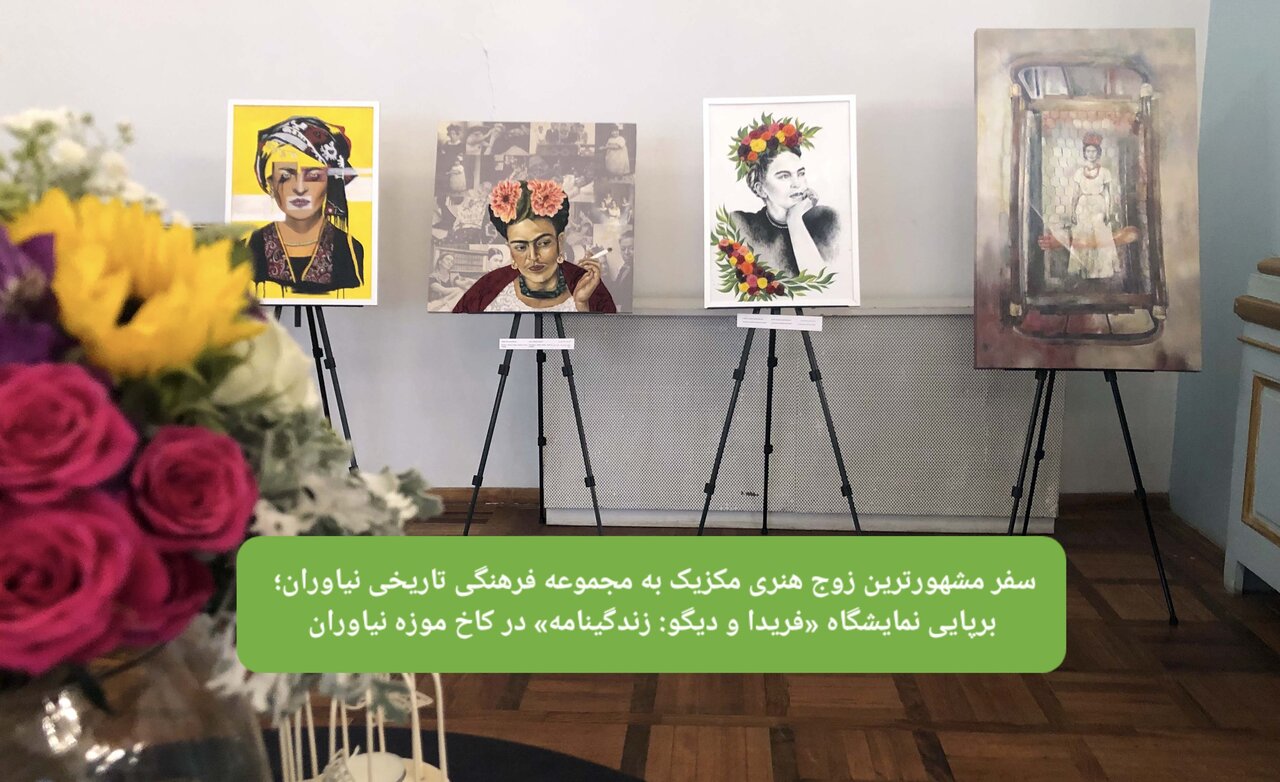Tehran exhibit celebrates Mexican artist couple Frida Kahlo, Diego Rivera

TEHRAN – An exhibition underway at the Blue Hall of Tehran’s Niavaran Cultural Historical Complex is showcasing collections of artworks on the Mexican artist couple Frida Kahlo and Diego Rivera.
Entitled “Frida and Diego: Life Chronicles”, is being organized in collaboration with the Embassy of Mexico in Tehran.
The exhibit comprises three sections, the first of which is putting on view a collection of 60 family photos of the couple loaned by a museum in Mexico City, the First Secretary of the embassy, Diego Ruiz Gayol, has said.
La Casa Azul, Kahlo’s home in Coyoacán, was opened as a museum in 1958, and has become one of the most popular museums in Mexico City.
In addition, a house in San Ángel, where Kahlo and Rivera lived in from 1934 until their divorce in 1939 was converted into Rivera’s studio.
In its second section, the exhibition features works produced by Iranian artists about Kahlo.
In another part, a collection of Kahlo dolls made by a number of Iranian artists and the wife of the Mexican ambassador in Tehran is on view. The exhibition will run until May 13.
Kahlo, a Mexican painter best known for her uncompromising and brilliantly colored self-portraits that deal with such themes as identity, the human body and death, was born on July 6, 1907 in Coyoacan to a German father of Hungarian descent and a Mexican mother of Spanish and Native American descent. She died in the Mexican city on July 13, 1954.
Although she denied the connection, she is often identified as a Surrealist. In addition to her work, Kahlo was known for her tumultuous relationship with muralist Diego Rivera, whom she married in 1929, divorced in 1939 and remarried in 1940.
As a child, she suffered a bout of polio that left her with a slight limp, a chronic ailment she would endure throughout her life.
Kahlo was especially close to her father, who was a professional photographer, and she frequently assisted him in his studio, where she acquired a sharp eye for detail.
Although Kahlo took some drawing classes, she was more interested in science, and in 1922 she entered the National Preparatory School in Mexico City with an interest in eventually studying medicine. While there she met Rivera, who was working on a mural for the school’s auditorium.
In 1925 Kahlo was involved in a bus accident, which so seriously injured her that she had to undergo more than 30 medical operations in her lifetime.
After her convalescence, Kahlo joined the Mexican Communist Party (PCM), where she met Rivera once again. She showed him some of her work, and he encouraged her to continue to paint.
Soon after marrying Rivera in 1929, Kahlo changed her personal and painting style. She began to wear the traditional Tehuana dress that became her trademark. It consisted of a flowered headdress, a loose blouse, gold jewelry, and a long ruffled skirt. Her painting “Frida and Diego Rivera” (1931) shows not only her new attire but also her new interest in Mexican folk art.
Their newly constructed house in San Ángel comprised separate individual spaces joined by a bridge. The residence became a gathering spot for artists and political activists, and the couple hosted the likes of Leon Trotsky and André Breton, a leading Surrealist who championed Kahlo’s work.
Photo: A poster for the exhibition “Frida and Diego: Life Chronicles” at Tehran’s Niavaran Cultural Historical Complex.
MMS/YAW
